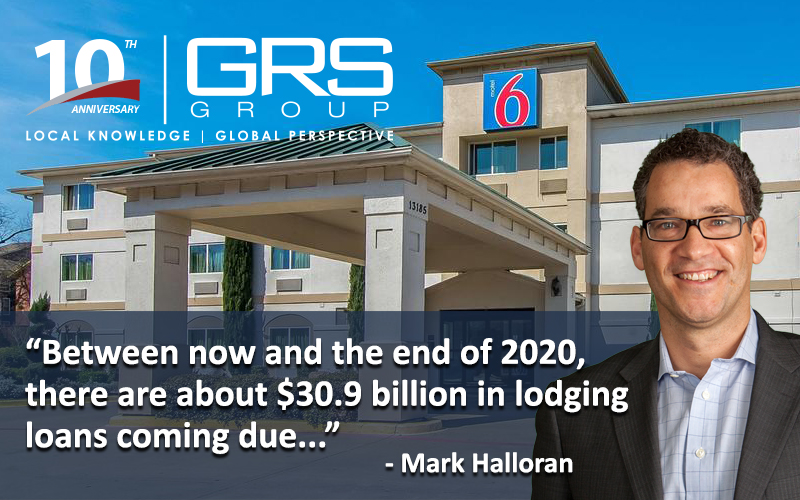A continued strong U.S. economy has spelled good fundamentals for commercial real estate’s hotel sector, as business travel and tourism are both at high levels.
As a result, JLL’s 2019 hotel forecast (download here) has predicted another strong year for hospitality acquisitions, forecasting $36.5 billion in transactions this year, the same total executed in 2018.
If that’s the case, there are going to be a lot of loans taken out for these purchases, on top of the ones that are coming due in 2019 and the next few years.
A recent Trepp report (download here) details the state of hospitality CMBS loans coming due.
There have been some large lodging deals over the last few years, on top of it being a sector in which there are consistently large one-off transactions of marquee full-service assets. Between now and the end of 2020, there are about $30.9 billion in lodging loans coming due, about one third of all property types.
The largest is the $1.87-billion backed by a 460-asset Motel 6 borrowing, which was part of the deal when Blackstone Real Estate Partners acquired the chain in 2012. Another is for $1.2 billion, as part of the refinancing of Las Vegas’ Cosmopolitan, also owned by Blackstone. In the case of both, each have extensions available.
For all lodging CMBS loans that are in place, full-service hotels account for 50 percent, at $42.9 billion, while limited-service totals $14.1 billion and extended stay is at $5.7 billion. Portfolio loans, with a mix of different property types, total $20.4 billion.
While Trepp acknowledges that hotel occupancy rates have been strong the last few years, averaging nearly 75 percent, it says that NOI (net operating income) increases have lagged. Since 2010, hotels were solidly above all other property types in this measurement, but that changed in 2016. Growth was a mere 0.29 percent that year, followed by 0.16 percent in 2017, the last period Trepp has statistics for. In 2017, most regions posted retraction in NOI, however, the Mountain and Southwest regions of the country increased, between five and six percent.
Meanwhile, construction of new hotels is not without its challenges as well. Tough lending standards for construction loans, high labor costs along with a smaller pool of workers, and tariffs are among the obstacles that developers must face building new product.
But as long as the consumers keep coming, smart owners will find a way to get the most out of their assets and build more.
About GRS Group
GRS Group is a leading provider of commercial real estate (“CRE”) services worldwide. With offices across the United States, Europe, and affiliates around the globe, GRS Group provides local market knowledge with a global perspective for institutional real estate investors, occupiers and lenders worldwide. The GRS Group team has evaluated and advised on over $1 trillion in CRE transactions.
Through the company’s proprietary management process, Global Services Connection, GRS Group delivers an integrated suite of services including Financial Advisory, Transaction Management, Assessment and Title Insurance. We provide a single point of contact, capable of leveraging the GRS Group portfolio of companies and delivering customized solutions to assist our clients in achieving their investment goals.

